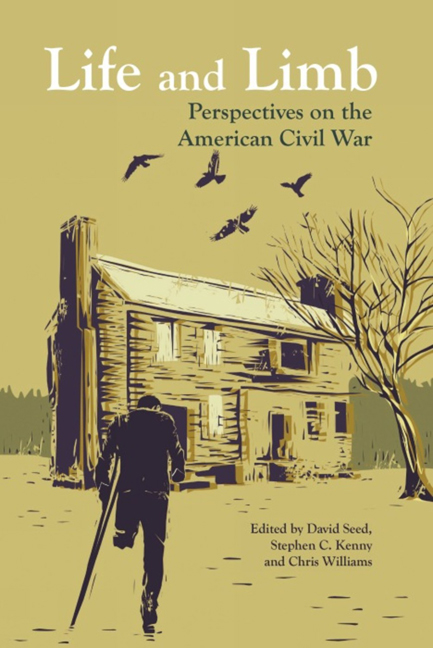Book contents
- Frontmatter
- Contents
- List of Illustrations
- Acknowledgements
- Introduction: Civil War Voices and Views
- MEDICAL AND SURGICAL MEMOIRS
- Early Experiences in the Field: ‘Surgical Reminiscences of the Civil War’
- Case 275: The Medical and Surgical History of the War of the Rebellion
- ACCOUNTS OF NURSING
- MEDICAL FACILITIES AND PATHOLOGY
- PHOTOGRAPHY
- AMPUTATIONS AND PROSTHETIC LIMBS
- IN THE FIELD OF BATTLE
- POST-WAR NARRATIVES
- Contributors
- Select Bibliography
- Index
- Plates
Early Experiences in the Field: ‘Surgical Reminiscences of the Civil War’
from MEDICAL AND SURGICAL MEMOIRS
- Frontmatter
- Contents
- List of Illustrations
- Acknowledgements
- Introduction: Civil War Voices and Views
- MEDICAL AND SURGICAL MEMOIRS
- Early Experiences in the Field: ‘Surgical Reminiscences of the Civil War’
- Case 275: The Medical and Surgical History of the War of the Rebellion
- ACCOUNTS OF NURSING
- MEDICAL FACILITIES AND PATHOLOGY
- PHOTOGRAPHY
- AMPUTATIONS AND PROSTHETIC LIMBS
- IN THE FIELD OF BATTLE
- POST-WAR NARRATIVES
- Contributors
- Select Bibliography
- Index
- Plates
Summary
William Williams Keen (1837–1932) was the first brain surgeon in the United States. He signed up in the army medical corps as Assistant Surgeon in 1861, completing his studies the following year. In the meantime, he served in the aftermath of the first Battle of Bull Run in July 1861, where the Union army suffered heavy casualties. Keen gives a grim account of general lack of medical facilities in the early stages of the war, including his own lack of training. He notes the lack of supplies, recurrence of gangrene, and the shortage of surgeons. Keen studied in Paris and Berlin, going on to become president of the American Medical Association and Professor Surgery.
The following excerpt is from Keen's ‘Surgical Reminiscences of the Civil War,’ collected in Addresses and Other Papers (Philadelphia: W. Saunders, 1905), also in Transactions of the College of Physicians of Philadelphia 27 (1905), pp. 95–114.
My first initiation into real warfare was at the First Bull Run. We had marched the day before until after midnight, and were awakened after a brief sleep to the activities of a memorable day in the history of the war. It was an exceedingly hot day, and we marched and halted in the thick dust under a broiling sun until about noon, when my regiment became engaged. Up to that time, and, in fact, during the entire engagement, I never received a single order from either colonel or other officer, medical inspector, the surgeon of my regiment, or anyone else. It was like the days when there was no king in Israel, and every man did that which was right in his own eyes. I did not see the surgeon from the middle of the forenoon. As we approached the battlefield I saw beside a little stream a few surgeons, among whom I knew one, and I asked him what I ought to do, for I was as green as the grass around me as to my duties on the field. My friend Carr, of Rhode Island, suggested that I should turn in there and help, advice which I followed all the more readily because just at that time some of the advance of my own regiment appeared among the wounded.
- Type
- Chapter
- Information
- Life and LimbPerspectives on the American Civil War, pp. 11 - 12Publisher: Liverpool University PressPrint publication year: 2015



